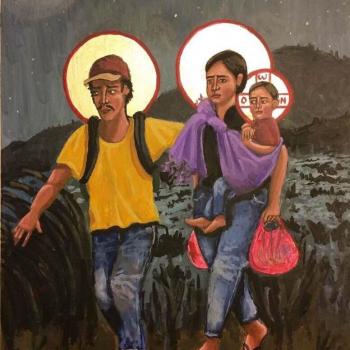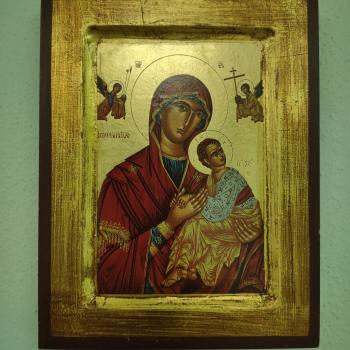Practically everyone reading this will have heard of the famous Christmas ghosts who frightened a rich miser into repentance. The story is so well known that anyone attempting to write a similar story would be accused of plagiarizing Dickens. A Christmas Carol In Prose Being A Ghost Story of Christmas was released in 1843. It was an instant hit. So much so, that Dickens continued to write Christmas stories the following years. The story published in 1844, The Chimes: A Goblin Story of Some Bells that Rang an Old Year Out and New Year In, is not as well-known. But it is no less powerful than the story of the hauntings of Ebenezer Scrooge. I have written about this story before. I will surely write more. Because, like the 1843 story, I read this one every year.
Haunting Toby Veck
“I take my stand with Toby Veck,” says the narrator. Toby “Trotty” Veck is a sympathetic character. He is a poor man living in London who makes his living running messages throughout the town. Toby wants to be considered “worth his salt,” strong, and fast. He is probably neither of these things. But who among us does not harbor a few harmless delusions about ourselves? Still, the problem with delusions is the difficulty of knowing whether they are harmful?
Toby enjoys the sound of the bells from a nearby church. To him, they have many sounds all of them comforting and encouraging. They may be sounding a prayer or a promise. He draws from them the lesson to do one’s best and never lose heart. Toby never hears anything else in the bells. So, why do they haunt him in this story?
Ghosts With Lessons
Toby draws lessons from other places too. He runs messages for middle class politicians. They have all sorts of practical advice. The most important lesson is that Toby is of a class of people who are shiftless, criminal in nature, and ungrateful for every effort to help them. The poor eat too much, breed too much, and owe too much. Toby believes good people do not do such things. The poor, he believes from the best authorities, are born bad with little hope. Toby Veck joins in the condemnation of his type of people.
The church bells call to him in the middle of the night as the New Year approaches. Rather, their goblins call to him. These ghosts speak judgment on Toby. He grovels to them declaring he had no intention to offend. But by upholding the values expressed by the people who condemn poor people like himself, he is guilty of offending the spirits of the bells. By being judgmental against his own kind, he has offended the bells. And by condemning himself by what he is told are his sins, he has offended the bells, their church, and the Spirit behind them all.
The First Lesson
Toby is sent as a ghost himself 9 years into the future to see for himself the double-standards and hypocrisy of the people he admired. Those people of wealth and means are much more forgiving of the same sins they condemn among the poor. The posturing and the paternalism toward the poor are mere words that do nothing except to congratulate themselves on their own goodness. Readers can be forgiven if they think this is the primary lesson of the ghosts. It is not. Toby has another lesson to learn.
The Lesson of Cruelty
Toby will learn a lesson in cruelty from his daughter, Meg. Dickens is not merely speaking of the poor in this story. He speaks about the working class of his time. It is easy to simply invoke Matthew 25 and the Sermon on the Mount as the lesson Dickens gave as we may do with Scrooge. But Toby will see the working poor being cruel to the working poor. His daughter is driven to desperation by a man who absorbed the same bad lessons Toby learned. At the end of the story, Toby tries to save his daughter from the condemnation he gave another woman he read about in the newspaper.
Working class cruelty to the working class is too well-known. It is the lesson Moses tries to teach an Israelite who harms another of his people. Why not act this way, the Israelite slave wants to know? Moses an Egyptian prince killed an Egyptian overseer. Is one action any more cruel than the other? What kind of posturing and hypocrisy is Moses practicing? Should the slave imitate the master? Why cannot the worker act like the boss? Many of us know, Trumpism is nothing but cruelty of one group of working class poor against another that is depicted as the criminal class.
Teaching Ghosts
The goblins of the bells want Toby to learn this lesson. Do not follow the ways of people who would grind you as grist for the mill. Their righteousness is only cruel and never redemptive. The person who turns Meg away is another one asking about workhouses. Toby learns this lesson and turns his gratitude away from those who are not worthy of it.
*Yes, The Chimes is about the New Year and not specifically Christmas day. But that is because Holy Name day is lost with New Year activities. Anna and Simeon recognize the gift that comes to them on that day. Their story is just as much a part of Christmas as the Magi. Merry Christmas and Happy New Year. Glorious Life will be back after January 2nd.











